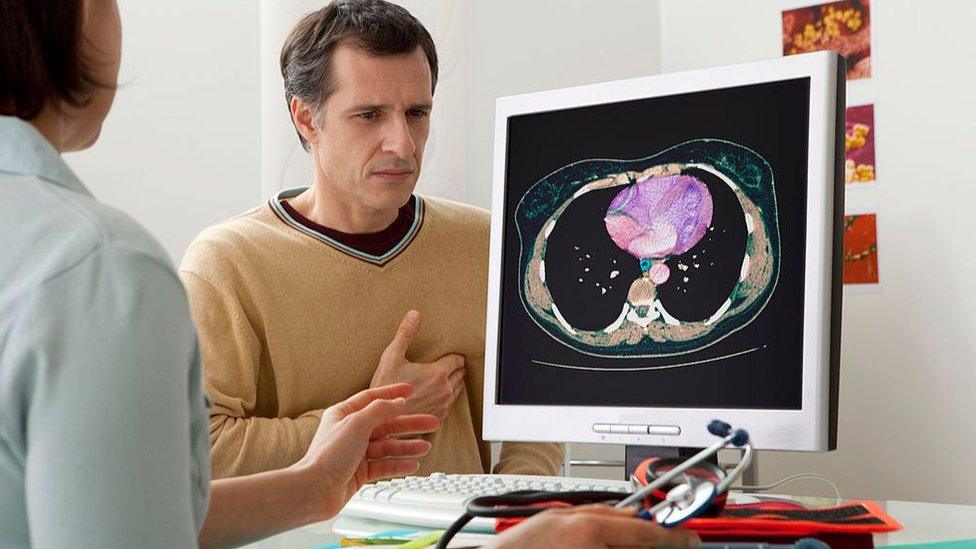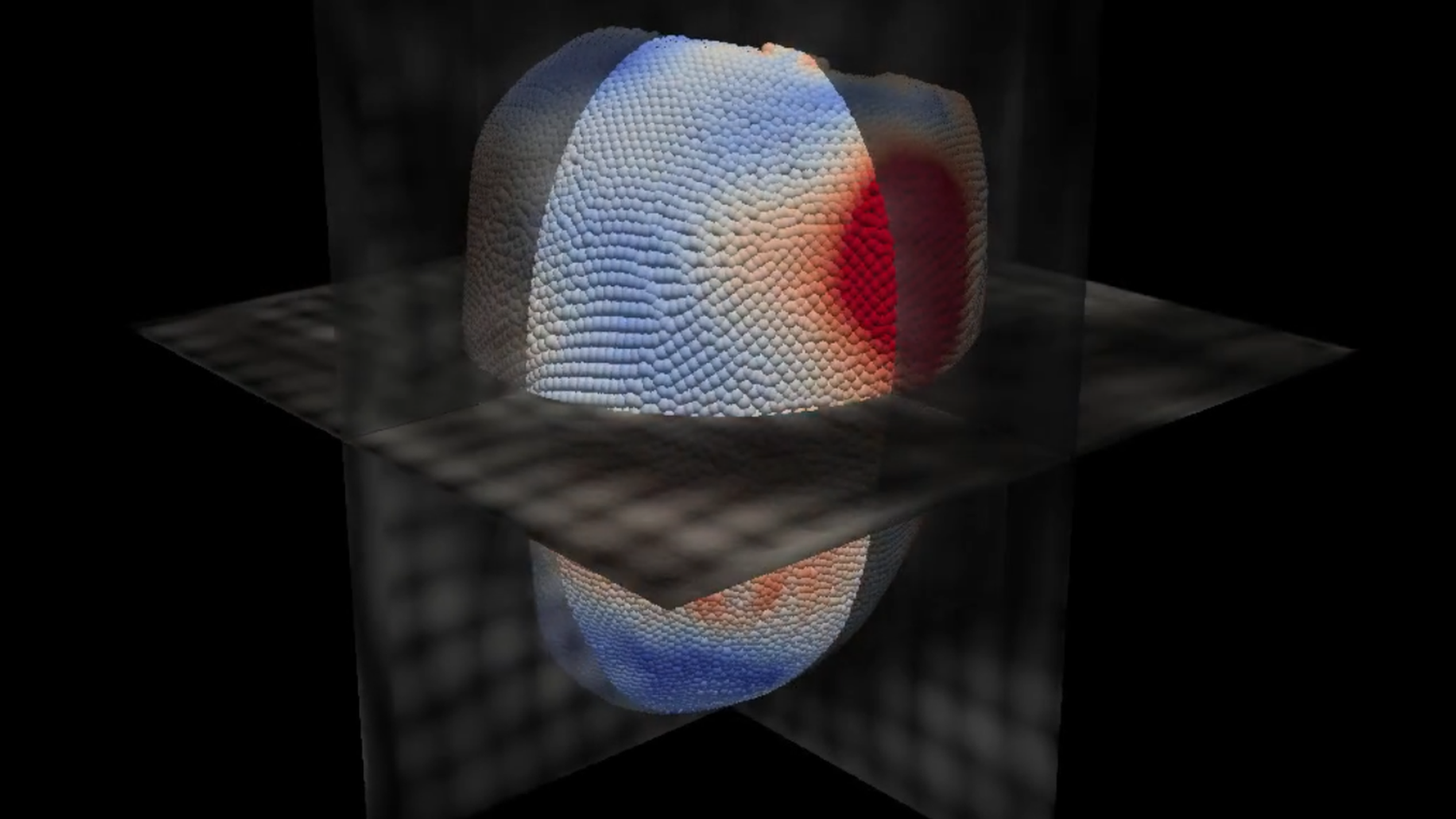NHS uses AI scan to detect hidden heart disease
- Published
- comments

The technology could help save "thousands of lives"
The NHS is using artificial intelligence to treat patients at risk of a heart attack, years before they strike.
CaRi-Heart can spot minor problems undetected by routine scans, Oxford University researchers say, identifying inflammation and scarring in the lining of blood vessels that supply the heart.
The tool is being rolled out at 15 hospitals around the country.
And the NHS hopes up to 350,000 patients could benefit every year.
About three out of every four patients who have a generic computer-assisted tomography (Cat) scan after chest pains are given the all clear.
But one in five of these goes on to have a heart attack within a decade.
And when the researchers used CaRi-Heart to analyse these scan results, one in three of those considered "low-risk" were re-categorised as "high risk".
“The beauty of our technology is that it will not only save countless lives but it is incredibly simple," former British Heart Foundation researcher Dr Cheerag Shirodaria, who worked on the project, said.
“CaRi-Heart analysis can be undertaken on any Cat heart scan, hospitals don’t need to change equipment and patients don’t need another test.
"It fits perfectly with a physician’s workflow."
Watch: Could artificial intelligence replace doctors?
The technology is already being offered at 15 sites, including hospitals in Oxford, Leicester and London, to patients aged 40-70 who have had chest pains
Cardiovascular disease currently affects about seven million people in the UK and costs the NHS more than £16bn every year.
Last year, researchers found AI technology was more accurate than doctors in diagnosing breast cancer from mammograms.
- Published2 January 2020
- Published2 August 2019

- Published16 January 2017
